

Tao Te Ching
Search Sages
Enter all or part of an sage's name or biography in the fields below, then press tab or enter to filter the list of Authors. Click the headings Name or Biography to sort by that column. Diacritics are ignored when searching.
Click on the author's name to go to their page.
| Author Name | Biography |
|---|---|
| Arnold Glasow |  Arnold Glasow Arnold GlasowBusiness with humor |
| Arnold Toynbee | 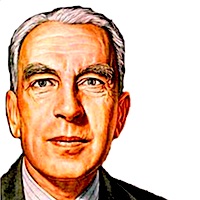 Arnold Toynbee Arnold ToynbeePhilosopher of history, international affairs expert, research professor, and prolific author; Toynbee was the the world’s most translated, read, and discussed scholar for much of the 20th century. He wrote hundreds of books and articles translated into more than 30 languages. Applying his insights from studying history to modern political problems, he became a delegate to the 1919 Paris Peace Conference, worked in the British Foreign Intelligence Office, and held a long-term position at the London School of Economics. His historical studies led to persuasive theories about how civilizations arise as a response to extreme challenges by "creative minorities" and how these solutions change the course of cultural evolution. Believing that civilizations most often die from suicide rather than invasion or natural causes, he describes the process of how civil-success leads the people and leaders to a kind of complacency full of nationalism, militarism, and oppressive tyranny. |
| Aro Lingma, Khyungchen | 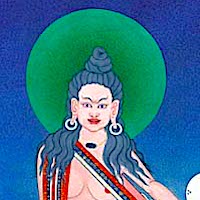 Aro Lingma, Khyungchen Aro Lingma, KhyungchenProfound female lineage exemplar Terton discoverer of spiritual treasures, manifestation Yeshé Tsogyel, Nyingma lineage holder, and inheritor of the Mother Essence Lineage; Aro Lingma grew up wandering around the caves where her parents meditated in retreat. Trained from the earliest age in the most advanced Vajrayana practices like Tumo and Yantra Yoga, she wandered alone for days and described profound meditation experiences when she returned. When she was 16, her parents died and she began her life as a wandering yogini. She avoided “religious” people as much as possible often pretending that she was dumb so she wouldn’t have to talk with them. Quickly attracting numerous disciples, she continued and advanced this female lineage. |
| Arthur C. Clarke | 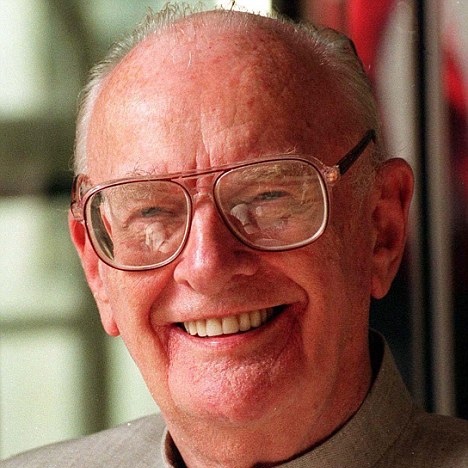 Arthur C. Clarke Arthur C. Clarke |
| Arthur Desmond | 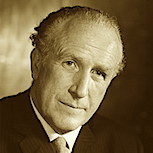 Arthur Desmond Arthur DesmondArthur Desmond (c. 1859 – 1929), aka Arthur Uing, Ragnar Redbeard, Richard Thurland, Desmond Dilg, Gavin Gowrie Bank-bashing heroic reformer, “The Poet of Revolution,” author, and politician; Desmond started a political organization dedicated to “emancipation from poverty, competitive commercialism, industrial wage slavery, tyrannical authority, and mental bondage." Like Machiavelli and his satirical book The Prince, Desmond was slandered by the rich and powerful plutocrats of his time as an immoral, satanic figure, advocating Social Darwinism, racism, and fascism. His book, Might Is Right, however, was called by fellow labor movement collaborators, “one of the greatest books ever written." He promoted land reform, the nationalization of large estates and banks, single taxation and called bank directors "scoundrels", large estate owners "blood-sucking leeches" and the local press as "hirelings of monopoly.” |
| Arthur Schopenhauer |  Arthur Schopenhauer Arthur SchopenhauerThough mainly unnoticed during his life, after he died Schopenhauer’s work had a huge impact on psychology, literature, art, philosophy, music and science. He was one of the first Western thinkers to affirm major aspects of Eastern philosophy. He called himself a Buddhist and compared his philosophy to basic Buddhist teachings. Einstein extolled Schopenhauer’s life-long influence and he was also respected and emulated by people like Nietzsche, Tolstoy, Freud, Jung, Joseph Campbell and Thomas Mann. His influence continues today into fields like modern evolutionary psychology. |
| Arthur Waley | 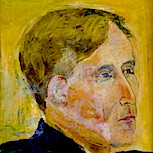 Arthur Waley Arthur WaleyEast to West ambassador, remarkable Chinese and Japanese translator called a "great transmitter of the high literary cultures of China and Japan,” sinologist, and poet in his own right; Waley’s poetic translations based on understanding not just the words but the sense as well, pioneered a new understanding and appreciation of oriental philosophy in the west. His Tao Te Ching translation, The Way and Its Power is one of the best older version translations with clear and insightful commentaries. |
| Arundhati Roy | 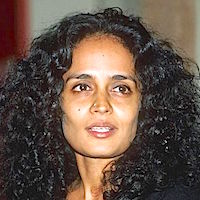 Arundhati Roy Arundhati Roy |
| Arwa al-Sulayhi | 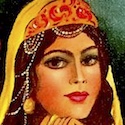 Arwa al-Sulayhi Arwa al-SulayhiThe stellar example in Muslim history of an independent queen; Arwa ruled Yemen, was the greatest leader during the Sulayhid Dynasty, and was - for the first time in the entire history of Islam - a woman given the title of hujja, the highest status in Islam. Extremely beautiful, intelligent, scholarly, brave, and powerful; she studied science, poetry, history, completed practical and beneficial infrastructure projects, supported agriculture, and built many schools. Her direct lineage continues today in both Yemen and India. |
| Arya Prajnadhara |  Arya Prajnadhara Arya Prajnadhara 27th Zen Patriarch, one of the few women Zen lineage leaders, and teacher of Bodhidharma; details about Arya Prajnadhara’s life are rare and difficult to find. Because of being a woman Patriarch in this predominantly male tradition and because of encouraging Arya Bodhidharma’s travels to China; although being almost completely unremembered by history, she had a huge influence on the evolution of Buddhism. Since her main disciple moved to China and Chán Buddhism mixed with Taoism, this influence in India diverted into the Maha Siddha tradition, spread to Tibet as Vajrayana, and reunited with Chán as Maha Ati or Dzogchen. |
| Āryadeva | 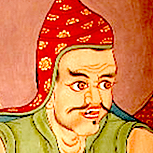 Āryadeva ĀryadevaBorn a king, Aryadeva became teacher to 1000 monks, a Mahasiddha, abbot of Nalanda University, disciple/teacher of Nagarjuna, 15th patriarch of Chan Buddhism, medicine doctor monk, and cofounder of the Mahayana school. One of “the six great commentators on the Buddha's teachings,” he wrote many important texts, exemplified in his path the progressive loss of a belief in a separate self, and remains a shining example of direct and complete realization. |
| Ashoka |  Ashoka AshokaOne of the world's most enlightened leaders One of India’s greatest emperors, after witnessing the immense bloodshed during a war Ashoka became the first Buddhist leader and sent teachers as far away as Egypt, Greece, Nepal, China, Thailand and Viet Nam. He brought about a golden age for India, renounced violence and religious intolerance, built 84,000 monasteries, hospitals for people and animals, championed the environment, human rights and gender equality. He was the first ruler in human history to ban slavery, the death penalty, animal cruelty, and deforestation. H.G. Wells wrote that his reign, “was one of the brightest interludes in the troubled history of mankind.” |
| Ashvaghosha | 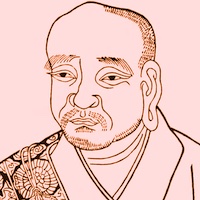 Ashvaghosha Ashvaghosha"Bodhisattva with a Horse-Voice" (because even horses listened to his talks) Considered the first Sanskrit dramatist, one of the greatest Indian poets, and writer of epics that rivaled the Ramayana; Ashvaghosha—because of losing a debate and having to become a Buddhist—transformed from a wandering ascetic into one of his age's most influential philosophers. His writings ranged from religious poems considered a virtue to just read... to political themes critical of caste and Vedic-imposed inequity. He became spiritual advisor to the emperor, Kanishka who helped develop the Silk Route and spread Buddhism into China. |
| Aspasia |  Aspasia AspasiaA female Socrates and dramatic influence on Western culture An hetaera, a highest class courtesan who – unlike most women of the time - was highly educated, independent, and able to participate in public life, Aspasia became Pericles’ mistress and a dramatic influence on Greek politics, philosophy and culture. Her home was an intellectual greenhouse attracting the greatest thinkers of the era and her teachings influenced Socrates, Plato, Xenohon, and many more. Intelligent, beautiful, charming, and called a "female Socrates;” she taught realization through self-knowledge and although a prostitute, her advise was so respected influential Athenians brought their wives to hear her. |
| Atisha |  Atisha AtishaOne of the major figures in classical Buddhism, Atiśa inspired students and teachers from Tibet to Sumatra. Born into royalty in the capital of the Pala Empire, Atiśa became a monk and scholar said to have studied with more than 150 different teachers. Founder of the Kadam School, he traveled and taught widely. In The Seven Points of Mind Training he condensed Buddhist teachings into easy-to-remember slogans. The lineage of people using this technique includes Aesop, Balthasar Gracian, Ben Franklin, Erasmus, Yang Xiung as well as The Dhammapada. |
| Audrey Hepburn |  Audrey Hepburn Audrey HepburnShe wasn’t that beautiful really, not sexy, an okay actress but not exceptional; what made Audrey Hepburn so popular was her deep goodness as a person. A wise and thoughtful humanitarian, she was active in the Dutch resistance during World War II, nominated for 7 Academy Awards, won twice and is one of only a few people who won Academy, Emmy, Grammy, and Tony Awards. She became the Goodwill Ambassador of UNICEF and devoted years working in some of the poorest communities of Africa, South America and Asia. Her movies continue to uplift, inspire, and improve the lives of millions of people. |
| Augustine | 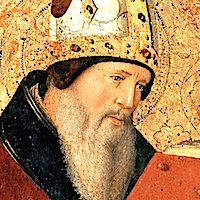 Augustine AugustinePhilosophical Christian theologian, Neoplatonist, prolific writer of over 100 books, and strong influence on the evolution of Western philosophy; Augustine fought against slavery and pre-emptive war, supported women’s rights, and encouraged the acceptance of Jews. Although responsible for defining and promoting the concept of original sin, railing against magic, and fighting against paganism; his vision of the “heavenly city” positively influenced Marxism, the Enlightenment, and the environmental movement. Although used as a foundation for dogmatic belief systems, he appreciated doubt and described the search for truth and understanding as a “restless journey.” Channeling the mysticism of Plotinus and influenced by Virgil, Cicero, Stoicism, and Platonism; he became a focus for later philosophers like Schopenhauer, Kierkegaard, Bertrand Russell, Nietzsche, and Heidegger. |
| Augustus | 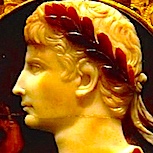 Augustus AugustusFounder, first Emperor, and architect of the greatest empire of ancient history, the Pax Romana golden age, the longest period of prosperity in history, a regime that lasted almost 1500 years; Augustus became heir to Julius Caesar when 18 and leader of the western world at 31. Living simply like a philosopher instead of a king, he began with his world in corrupted chaos and established a balanced blend of order and freedom. He made good laws, helped both rich and poor, personally oversaw extensive infrastructure, 250,000 miles of roads, created police, fire-fighting, and courier services. He ruled Rome for 40 years and yet died believing he was a complete failure. |
| Aung San Suu Kyi | 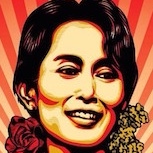 Aung San Suu Kyi Aung San Suu KyiThe daughter of Aung San, Burma’s popular and still admired but assassinated “Father of the Nation” who negotiated independence from British rule, established a new government and became a national hero; Suu Kyi helped lead a rebellion against a corrupt government that had made Burma one of the world’s poorest countries. Sustained by her Buddhist practice and dedication to love and compassion, she transformed imprisonment, threats, slander, and 15 years of house arrest into becoming the world’s most famous political prisoner. After leading her party to a landslide victory for the first civilian government in over 50 years, she became according to Barak Obama, “a beacon of hope” for millions of oppressed people around the world. |
| Averroes, Ibn Rushd | 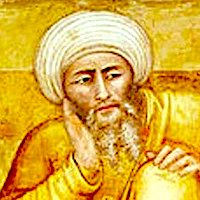 Averroes, Ibn Rushd Averroes, Ibn RushdPolymath, famous Islamic philosopher and scientist, theologian, and physician; Averroes took the position that the Koran and sacred writings were allegories and not to be taken literally. Arguing for an understanding deeper than just the literal meaning of texts, he popularized Aristotle and started a major Jewish and Christian philosophical movement but didn’t become influential in the Muslim world until the 19th century. In fact, during his lifetime, all his books that could be found were burned, he was removed from his positions, and exiled. Dante described him as he "who made the Great Commentary,” Chaucer listed him as a great medical authority, Raphael painted him into a fresco in the Apostolic Palace in the Vatican that depicts major philosophers, Borges featured him in one of his books, and a plant genus, a lunar crater and an asteroid were named after him. |